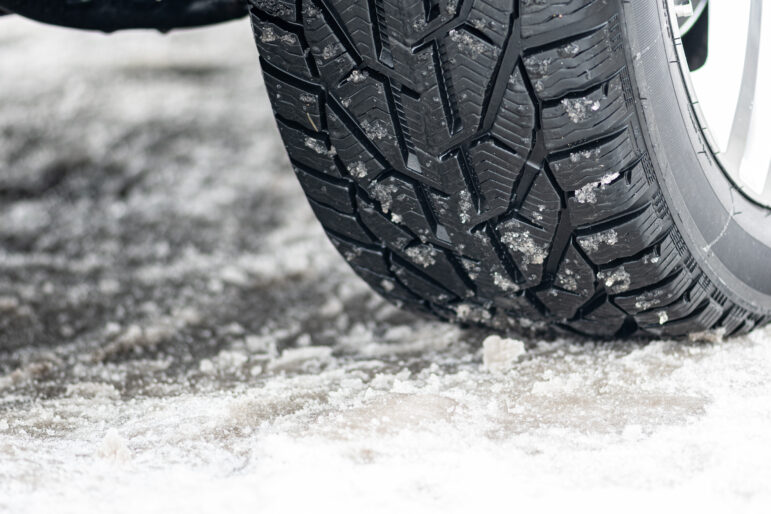Gov. Kay Ivey issued a state of emergency for 37 Alabaman counties Thursday, including the Birmingham metro area, ahead of a weekend winter storm. Forecasters expect icy weather to sweep through the region from Thursday night through Friday night.
The state of emergency begins at 1 p.m. on Thursday. It mobilizes the state’s national guard to assist impacted communities, allows schools and government offices to close, and expedites the movement of emergency vehicles and supplies.
Jason Holmes, a meteorologist with Birmingham’s National Weather Service office, said western Alabama can expect snow flurries starting Thursday evening continuing through the following morning. He recommended getting any errands done by Thursday afternoon, as freezing temperatures and icy conditions could begin Thursday night.
“Travel just is not going to be recommended,” Holmes said.
Residents have also been advised to hunker down in their homes. Bobby Lewis, associate professor emeritus in the University of Alabama at Birmingham Department of Emergency Medicine, said hospitals tend to see some people suffering from hypothermia during similar weather events along with patients who have slipped and fallen on the ice.
Young and old people are especially at risk in the cold since their bodies do not generate heat as easily, Lewis said, as well as residents with chronic illnesses and people without homes. He added that anyone drinking alcohol who falls asleep outdoors is especially in danger because of the freezing temperatures.
“We’ve had at least three deaths in the Birmingham area in the last day or so from hypothermia,” Lewis said.
Lewis added residents can spot signs of hypothermia by checking if someone’s hands and feet are cold, if their skin is pale and if they become disoriented or have difficulty walking. Hypothermia takes only an hour or two to become dangerous when a person is not moving around, he said. Lewis advised that hypothermia is best prevented by staying inside and bundling up in thick, dry layers, particularly gloves and shoes, should residents have to venture out during the storm.
Emergency rooms are stocking up on extra blankets to warm up patients suffering from the cold, Lewis said. Residents will also have access to transportation from hospitals to warming centers, he added.
Driving also poses a potential risk. Depending on how quickly the weather deteriorates, Jason Holmes with the National Weather Service said surface streets, particularly shady ones, along with bridges and overpasses will get icy and potentially treacherous.
The Alabama Department of Transportation has already started pretreating select routes around the state against sleet, ice, freezing rain and snow. Since temperatures are forecast to drop below freezing both Friday and Saturday night, Holmes said any accumulation on roadways could turn into black ice through Sunday morning.
Once the weather moves in, ALDOT officials said road crews will respond to ice and snow as needed. Responders will prioritize opening at least one single passable lane on major routes for emergencies. Officials advised against driving during the winter storm but said those who must travel should reduce speed and increase following distance. Drivers should avoid sudden braking and steering and refrain from using cruise control to prevent hydroplaning.
During the storm, the National Weather Service recommends having extra food and battery operated flashlights and radios on hand over the weekend. Should anyone have to travel, residents should pack extra blankets, socks, and shoes in their vehicles. Holmes also suggested finding alternative ways to stay warm in the event of a power outage.
“The moisture moves out from Friday night,” Holmes said. “So it really is almost like a 24 hour deal here. It’s not a prolonged event. Temperatures will actually get hotter up near 50 degrees by Monday.”

